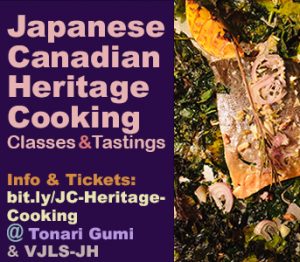Editorial

This year the Powell Street Festival celebrates its 35th Anniversary. Given the fact that Vancouver is marking its 125th Anniversary this year, it may not seem like such a great feat, but when you stop to think about it, and to look at it in the context of these fickle times we live in, it’s remarkable—extraordinary even.
The Festival arose directly out of the 1977 Japanese Canadian Centennial, marking the arrival of the first Japanese Canadian immigrant, Manzo Nagano. It was the first time that the younger generation of Japanese Canadians, the children of those that suffered the indignities of the Internment, began to come to terms with their shared heritage and to start asking questions about their history. It was this process of questioning, of stirring the pot, that set the stage for the Centennial, the Redress movement and, ultimately the rebirth of the Japanese Canadian community.
That first Powell Street Festival was a statement—it said, “We are here. We have been here for a hundred years. You tried to get rid of us with your orders-in-council and your racist policies, but we prevailed.”
The Festival was a reclamation of not only history, but of place. Oppenheimer Park, once known as Powell Grounds, sits at the heart of what was once a thriving community of shops and services, a place where people worked and played and raised families. They cheered on the Asahi baseball team, finding in sport a level playing field that was denied them elsewhere. Most of all they struggled to gain acceptance in a society that was for the most part closed to them.
Ultimately that acceptance was gained by working hard, by not sticking out, by dispersing across the country like scattered seeds.
By holding a festival, a uniquely Canadian version of a Japanese matsuri, on the old Powell Grounds, the community found its roots again—and the roots proved to be far stronger than anyone could have imagined.
35 years later, the Powell Street Festival is the longest running “ethnic” festival in the Greater Vancouver area, perhaps in all of Canada. Indeed, it is one of the longest running festivals period. Like the Nikkei pioneers who put down roots here, the Festival has persevered in the face of many challenges. Year after year it returns to an area that has been written off more than once and for one weekend banners fly, the smell of shoyu and salmon wafts down the street, hapa children frolic on the very spot where their great-grandparents once played and the beat of the taiko resonates off the old buildings, as if to say, “welcome home.”








